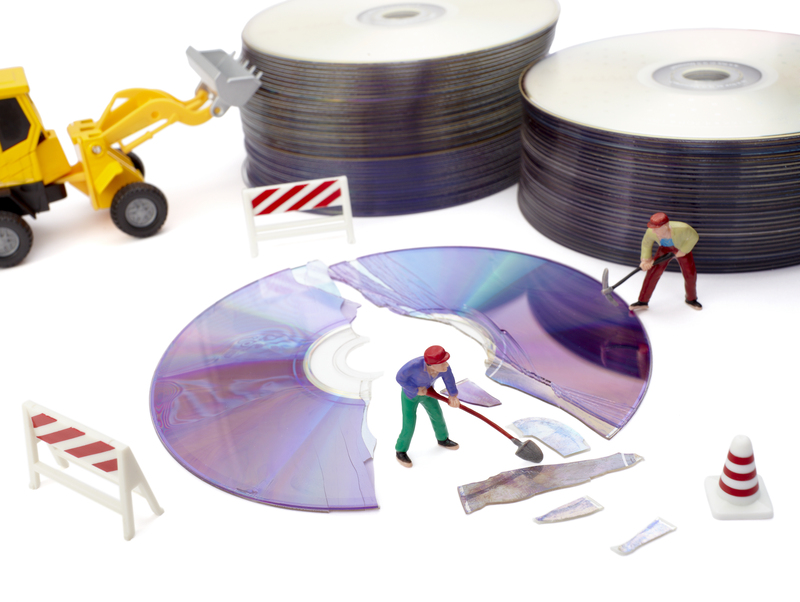Smart Solutions for Managing Bulky Waste Items on a Tight Budget
Dealing with bulky waste items--from old furniture to unwanted appliances--can feel overwhelming, especially when you have limited financial resources. Whether you're renovating, decluttering, or moving house, finding cost-effective and eco-friendly ways to dispose of large unwanted objects is crucial. This comprehensive guide covers the smartest strategies for efficiently and affordably managing bulky junk and waste items without breaking the bank.
Understanding Bulky Waste: What Does It Include?
Before diving into solutions, it's important to define what qualifies as bulky waste. Generally, bulky items include:
- Old furniture (sofas, mattresses, wardrobes)
- Large appliances (refrigerators, ovens, washing machines)
- Electronic devices (TVs, computers)
- Carpets, rugs, and large textiles
- Outdoor equipment (bikes, lawnmowers, swings)
Unlike regular household trash, these items can't be left on the curb or thrown in your regular garbage bin. Responsible and affordable bulky waste management helps reduce landfill use, encourages recycling, and often supports those in need.

Main Challenges with Bulky Waste Disposal
Many people struggle with disposing of large junk items for several reasons, especially when on a tight budget:
- High pickup or disposal fees by waste management companies
- Lack of transport vehicles suitable for hauling big items
- Local regulations that restrict curbside dumping
- Difficulty finding recycling or donation options for specific items
- Limited physical ability to move heavy objects
While hiring professional junk removal companies is convenient, the cost can be prohibitive. That's why exploring smart, budget-friendly options is essential. Let's uncover how you can responsibly rid yourself of unwanted bulky items without overspending.
Top Low-Cost and DIY Solutions for Managing Bulky Waste Items
1. Donate Gently Used Items
One of the smartest methods for managing bulky household waste is to donate items in good condition. Many charities and non-profits eagerly accept furniture, appliances, and equipment. Some even offer free pickup!
- Contact local thrift stores: Organizations like Goodwill, Salvation Army, and Habitat for Humanity Restore will often collect bulky donations.
- Post on community boards: Use Facebook Marketplace, Freecycle, Craigslist, or community apps to advertise your unwanted items for free. Many people are happy to pick up items themselves.
- School and shelter donations: Schools, shelters, or community centers may accept usable furniture or equipment for their facilities.
This approach not only saves on disposal costs but also benefits the community and reduces environmental impact.
2. Sell or Give Away On Online Marketplaces
Some "junk" could be treasure to someone else! Maximize your tight budget by selling or giving away items through popular digital platforms.
- List unwanted goods on: eBay Local, Facebook Marketplace, Craiigslist, OfferUp
- Upload clear photos and detailed descriptions to attract interest.
- Specify pickup only to avoid delivery hassles.
Selling large waste items puts a little cash back in your pocket, while "free to collector" listings often attract people looking for fixer-uppers or upcycling projects.
3. Organize a Yard or Garage Sale
Declutter, earn money, and eliminate bulky items in one go by hosting a neighborhood garage sale or yard sale. This is particularly effective if you have several items to remove at once.
- Advertise locally: Post signs, use social media, or inform neighbors.
- Offer bundle deals for bulkier items.
- Lower prices near the sale's end to increase chances of clearing out all items.
4. Leverage Municipal or Community Collection Programs
Many towns and cities offer periodic bulky waste pickup services--often at no extra cost or for a nominal fee. These may be scheduled monthly, quarterly, or by appointment.
- Check local council websites for collection dates, accepted items, and rules.
- Community clean-up events often provide drop-off days for bulky items.
- Register early to secure your slot and avoid waiting lists.
Because these programs are subsidized, they are a highly affordable option for disposing of large waste items responsibly.
5. Use Recycling Centers and Civic Amenity Sites
Consider bringing large waste to your local recycling or "tip" center. Many stations accept bulky items such as mattresses, white goods, and scrap metal for little or no charge.
- Sort your items: Different materials (e.g., wood, metal, electronics) may have designated drop-off points.
- Bring proof of address: Some centers restrict use to residents of a specific area.
- Use smaller vehicles or borrow a friend's van to transport items without hiring a professional mover.
This option is especially cost-efficient if you or someone you know already owns a vehicle and can handle the labor.
6. Upcycle or Repurpose Bulky Items
Looking to save even more? Transforming old, bulky items into something useful or decorative is both budget-smart and eco-friendly.
- Convert wooden furniture: Old drawers become planters or bookshelves.
- Turn mattresses into padding or insulation for pet beds or DIY projects.
- Upcycle pallets or crates as outdoor seating or tool storage.
- Reimagine old electronics for craft or art projects.
A quick search online yields countless creative tutorials for breathing new life into worn furniture and appliances.
7. Split Disposal Costs with Neighbors
If you and your neighbors are all decluttering, consider pooling resources to save money on bulky waste removal.
- Hire a shared skip or dumpster: Divide costs among participating households.
- Arrange a group pickup: Some **junk haulers** offer discounts for multiple stops in the same area.
- Coordinate transport: Borrow or rent a truck together for a single recycling center run.
8. Rent or Borrow Tools and Vehicles
When breaking down or hauling out very large waste items, you'll need the right equipment. Instead of buying tools or hiring a removal service, rent or borrow what you need:
- Moving dollies, hand trucks, or lifting straps let you safely move bulky waste with less effort.
- Tool libraries and local rental stores often loan equipment at minimal cost.
- Car-share services or van rentals provide transport for a fraction of professional removal fees.
9. Responsible Dismantling and Sorting
Many recycling centers and junk haulers charge less if you pre-disassemble large waste items or pre-sort materials. Doing so saves staff time and reduces their processing costs--which can translate into customer savings.
- Take apart bedframes, cabinets, or playground equipment with basic tools.
- Separate electronics, metals, plastics, and textiles to increase your options for recycling or reuse.
- Wrap sharp or hazardous items for safe handling and disposal.
Tips for Managing Bulky Waste on a Budget
- Plan ahead: Schedule pickups or recycling trips before items pile up.
- Compare all available options--including free, low-cost, and DIY methods--in your area.
- Ask friends or family if they need your old furniture or appliances before considering disposal.
- Consider renting tools only for a short period to avoid excess costs.
- Always check your local government website for current disposal guidelines and potential hidden fees.
The Environmental and Social Impact of Smart Bulky Waste Solutions
Every year, millions of tons of large household items end up in landfills unnecessarily. By adopting smart, cost-effective methods to manage your bulky waste, you're not just saving money; you're helping:
- Reduce landfill waste and greenhouse gases
- Conserve resources by recycling and reclaiming materials
- Support local charities and families in need
- Encourage a culture of reuse and sustainability in your community
Some communities even recognize citizens who frequently donate furniture or recycle bulky appliances, encouraging responsible waste management practices for everyone.
What to Avoid When Disposing of Large Waste on a Tight Budget
- Illegal dumping: Never abandon items on public land or outside charity shops. Fines and cleanup fees can far exceed legitimate disposal costs.
- Overfilling dumpsters or regular bins: This can result in extra charges and rejected collections.
- Hiring unlicensed haulers: Choose only reputable or council-approved waste removal providers to avoid potential legal issues and ensure your items are disposed of ethically.
- Ignoring hazardous waste protocols--items like refrigerators, TVs, and batteries often require special disposal steps to avoid environmental harm.

Frequently Asked Questions About Inexpensive Bulky Waste Disposal
Q: How can I find out about my local council's bulky waste programs?A: Most municipalities post bulky garbage collection schedules and guidelines on their official websites. Enter your postcode or city name plus "bulky waste" in a search engine for quick results.
Q: Is it free to leave furniture outside my house?A: Generally, no. You should never leave unwanted large furniture on the curb without council approval. Unauthorized dumping can lead to fines.
Q: Can I break down my large junk to reduce disposal costs?A: Yes! Dismantling furniture or appliances often reduces removal and landfill fees--plus, the parts may be easier to recycle or give away.
Q: Are there limits on how much bulky waste I can put out at one time?A: Yes, community and council pickups usually limit the amount or weight per collection. Always check before scheduling or you might have to wait for the next cycle.
Conclusion: Saving Money and the Planet with Smart Bulky Waste Solutions
Managing bulky waste on a tight budget doesn't have to involve stress or hefty expenses. Whether you choose to donate, sell, recycle, upcycle, or share disposal costs, the smartest solution is the one that fits your situation, resources, and community. By planning ahead and exploring all available options, you'll avoid landfill fees, prevent illegal dumping, and even make a positive impact--both financially and environmentally.
Remember, every piece of furniture or appliance you divert from landfill is a step toward a cleaner, more sustainable world. The next time you face a mountain of bulky junk on a budget, turn to these strategies for cost-effective, responsible disposal--and share your success to inspire others in your community.
Related topics:
